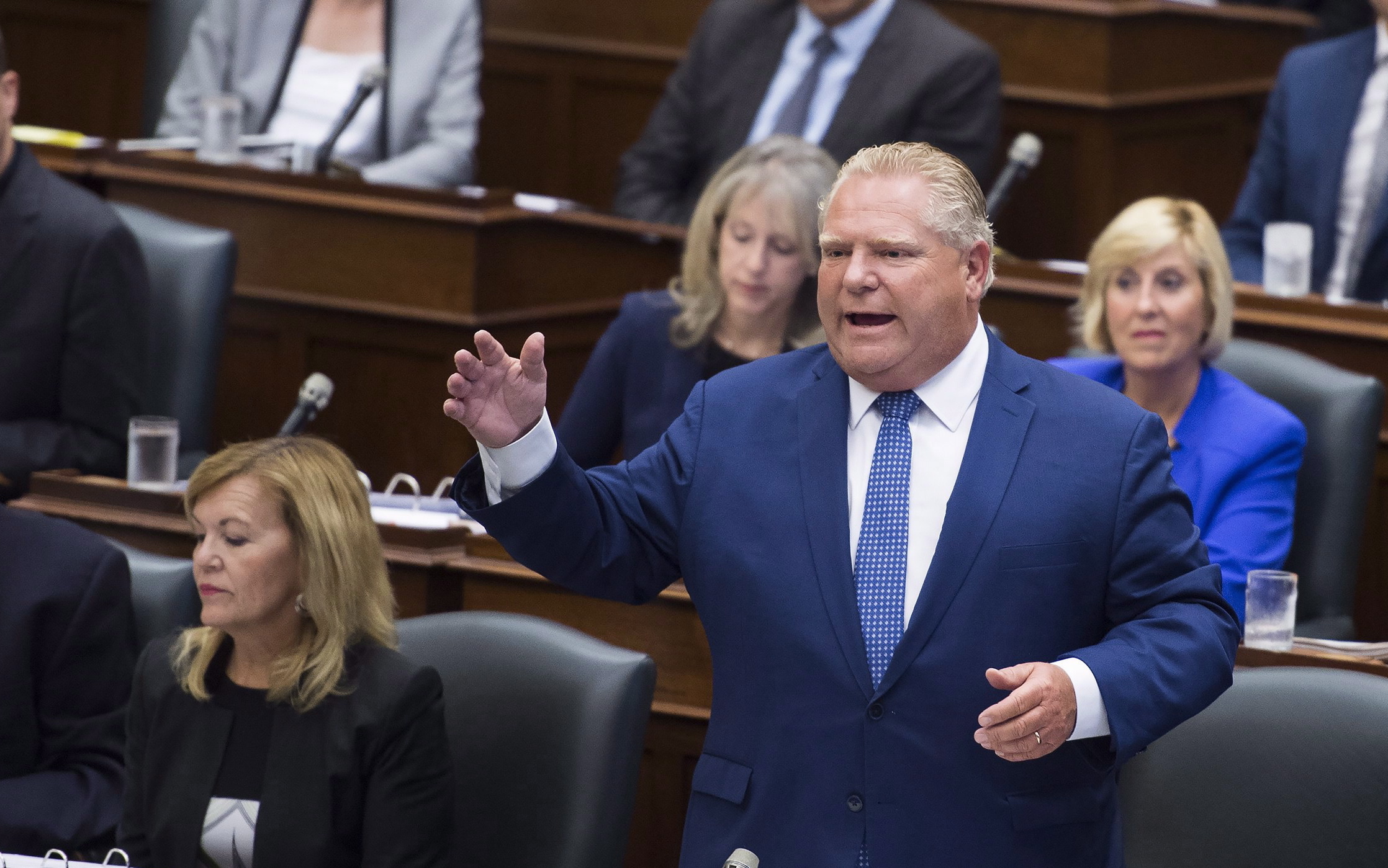Ontario high school students want a say in what they’re learning. That’s why an estimated 30,000 across the province are expected to walk out of their classes on Friday.
We The Students Do Not Consent, a student-led effort coordinated through social media, is a response to the conservative government’s move to scrap the 2015 sex-ed curriculum. It is also a protest against the ministry of education’s decision to cancel curriculum rewrite sessions specifically intended to increase Indigenous content being taught in Ontario classrooms.
You may unsubscribe from any of our newsletters at any time.
Although each school can decide how they want to take action, most students will walk out of class around 1 p.m. The 30,000 estimate comes from organizers.
Indygo Arscott, a 16-year-old Ojibwe student at Wexford Collegiate School for the Arts in Scarborough, Ont., started the movement. Arscott, who uses “they” pronouns, began to coordinate a walkout at their school after hearing about the curriculum changes in July.

“Personally, I’m coming from an LGBT and Indigenous perspective,” they say. “So on July 11th, when the Ford government released the news that they’d be reversing the sex-ed curriculum back to that of 1998, as well as minimizing or deprioritizing efforts to bring Indigenous content into the classroom, it felt really alienating.”
“I had my hopes up for social change, and then Doug Ford steps into the office and shuts it all down.”
Arscott, who has a growing online presence thanks to their Decolonize Schools Twitter account, says the movement became provincial in scope after they shared their idea on social media.
They and co-organizer Rayne Fisher-Quann created a public document so students could learn about the issues at stake, and another for them to share with their school administrators.
Arscott and Fisher-Quann also set up a “walkout ambassador” program for schools across the province to register their protests, and are also currently working on a list of demands to share with the media.

So far, nearly 70 schools say they plan to participate in the event, according to the organizers. At least five schools in Guelph, six in Ottawa, and several across the GTA are set to take part.
“(As) young people, we’re so often told that our voice doesn’t matter, that we don’t have a voice, and we’re not allowed to have opinions on these things,” Arscott says.
“Well it’s time that we show that we do know what we’re talking about.”
Grade 12 student Amina Vance is a walkout ambassador at Western Technical Commercial School in Toronto.
She says students at her school have been putting up posters around the neighbourhood, handing out flyers at a nearby subway station and talking to students about the issues.
“We’ve been asking people ‘Do you know what Doug Ford has been doing?’ or ‘Did you know about Doug Ford?’ and people, once they hear the issues, are overwhelmingly quite responsive to them,” Vance says.
“People generally understand why it’s important to have good sex-ed and people generally respect Indigenous education. And so once, you get your foot in the door, I found that it’s pretty doable and people are quite responsive. We have a lot of people who are excited about it, and are going to come out on Friday.”
Vance also says she believes that “going back to 1998 is frankly unsafe for people growing up.”
In an emailed statement, the Toronto District School Board said they were aware of the walkout.
“While this is not a TDSB-sanctioned event, the TDSB does encourage students to express themselves in constructive, respectful and responsible ways,” the statement says.
“At the same time, we want them to do safely and as a result, staff will be monitoring the protests on school property to ensure student safety.”















